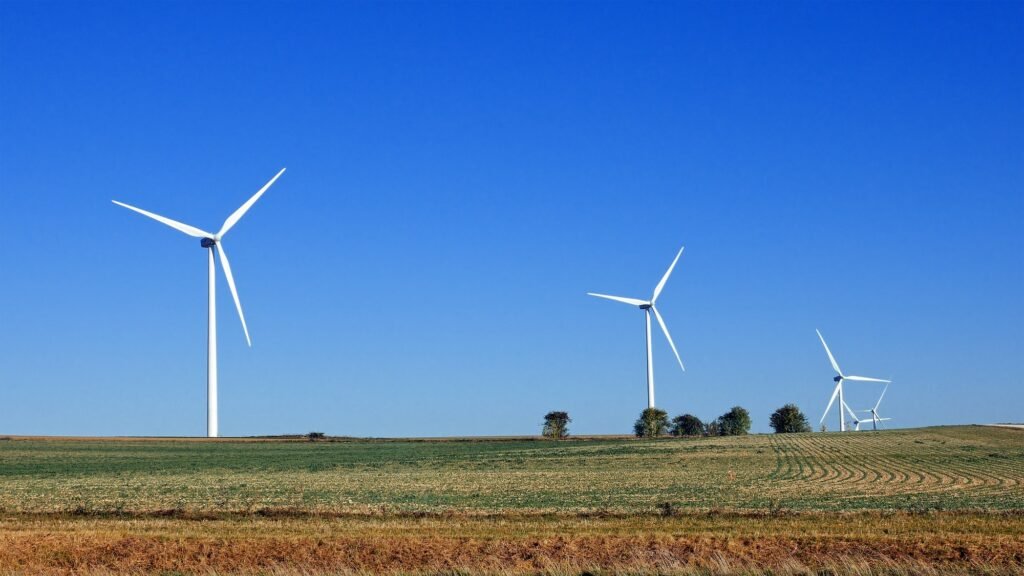When I invest in solar panels, understanding warranties and lifespan is crucial. Strong warranties protect my investment, covering defects and ensuring panels maintain at least 80% output after 25 years.
There are two main types of warranties: product and performance, each with specific terms. Knowing gaps in coverage can help avoid surprises down the line.
Plus, how I choose and assess warranties can impact my panels’ longevity markedly. There’s more to uncover about maximizing value and efficiency.
See Your Solar Savings – Calculate Now →
Key Takeaways
- Solar panel warranties typically include product warranties (10-25 years) and performance warranties (25 years) for energy output assurance.
- Most high-quality solar panels maintain at least 80% energy output after 25 years, reflecting their longevity.
- Degradation rates are generally around 0.5% annually, affecting the expected performance over time.
- Installation and labor warranties cover proper setup and related issues, often ranging from 10 to 25 years.
- Understanding warranty terms and exclusions is crucial for evaluating long-term reliability and potential resale value.
The Importance of Solar Panel Warranties
When investing in solar panels, understanding their warranties is essential because they protect your investment over the long term.
Solar panel warranties offer financial protection by covering manufacturing defects through a product warranty and ensuring energy output with a performance warranty.
Knowing that high-quality panels typically have a degradation rate of around 0.5% per year gives me peace of mind, knowing they’ll maintain at least 80% of their original output after 25 years.
A thorough warranty not only saves me from costly repairs but also enhances my home’s resale value, making it a smart choice for any homeowner.
Types of Solar Panel Warranties
Understanding the types of solar panel warranties is essential for anyone considering a solar investment. There are two main categories: product warranties and performance warranties.
Product warranties protect against defects in materials for 10 to 25 years, ensuring quality workmanship.
Performance warranties guarantee a specific level of energy production over 25 years, with degradation rates typically around 0.5% annually.
Some solar panel manufacturers, like Panasonic and Maxeon, offer robust coverage, including transferable warranties that can enhance your property’s value.
Additionally, inverter warranties usually range from 10 to 25 years, highlighting their importance in solar energy systems’ overall performance and warranty coverage.
Understanding Product and Performance Warranties
While exploring solar panel warranties, it is important to differentiate between product and performance warranties, as they serve distinct purposes.
A product warranty typically covers defects in materials and workmanship for 10 to 25 years, protecting against manufacturing faults.
On the other hand, a performance warranty guarantees a minimum energy output for 25 years, ensuring at least 80% efficiency despite degradation rates, often around 2% in the first year.
Installation-related defects fall under separate labor warranties, lasting 1 to 10 years. Understanding these differences is vital for evaluating the long-term reliability and financial security of your solar investment.
Key Features of Solar Panel Warranties
Product and performance warranties form the backbone of solar panel reliability, but several key features define their value. Here’s what I’ve found essential about solar panel warranties:
- Product Warranty: Typically lasts 10 to 25 years, covering manufacturing defects and assuring quality.
- Performance Warranty: Guarantees a minimum efficiency level, often at least 80% after 25 years, factoring in degradation rates.
- Certified Installer Importance: Warranty coverage can be voided by improper installation, so it’s vital to understand the warranty terms and select a certified installer.
Understanding these features helps guarantee a reliable solar energy system for years to come.
Gaps and Limitations in Warranty Coverage
Although solar panel warranties provide essential protection, there are significant gaps and limitations that homeowners need to be aware of.
These warranties often exclude damage from natural disasters and unauthorized modifications, leading to potential repair costs.
Additionally, labor for diagnosis isn’t covered, leaving unexpected expenses.
Non-compliance with installation guidelines can void warranties, and transferability may involve fees. Here’s a summary of common exclusions:
| Exclusion Type | Description | Importance of Insurance |
|---|---|---|
| Natural Disasters | Damage from storms or earthquakes | Additional protection needed |
| Vandalism | Accidental breakage or theft | Homeowners should insure |
| Unlicensed Repairs | Repairs by unauthorized contractors | Risk of warranty voiding |
| Installation Issues | Non-compliance with guidelines | Proper installation is key |
Factors Affecting Solar Panel Lifespan
When I think about the lifespan of solar panels, several key factors come to mind. The quality of materials used, installation techniques, and environmental conditions all play a significant role in how long these panels will last.
Understanding these elements can help us make informed decisions about our solar investments.
Quality of Materials
The materials that go into solar panels play an essential role in determining their lifespan. High-quality components lead to lower degradation rates, ensuring a long lifespan. Here are three key factors to evaluate:
- Durable Materials: Panels with tempered glass and corrosion-resistant frames withstand harsh conditions.
- Advanced Technologies: Monocrystalline silicon enhances efficiency and longevity compared to lower-grade options.
- Certifications: Look for IEC 61215 and IEC 61730 certifications, which signal better durability.
Investing in solar panels with these quality materials gives you confidence in their performance warranty and overall operational life.
Installation Techniques
While I might assume that the quality of the solar panels themselves is the only factor in their lifespan, installation techniques are equally crucial.
Proper installation by certified professionals can prevent issues like water leaks and electrical problems that reduce durability and longevity.
Using high-quality mounting systems guarantees stability against environmental factors, especially in extreme weather conditions.
Regular inspections during installation can identify misalignments or insufficient support, safeguarding system performance.
Additionally, placing panels in ideal locations avoids shading and maximizes efficiency, contributing to the overall lifespan of the solar panel system.
Environmental Conditions
Understanding how environmental conditions affect solar panel lifespan is crucial for anyone considering a solar investment. Here are three key factors to keep in mind:
- Harsh Weather: High temperatures can increase degradation rates, impacting efficiency beyond the typical 0.5% loss for quality panels.
- Corrosion: Proximity to the ocean can lead to saltwater corrosion, potentially voiding your warranty.
- Maintenance: Regular cleaning is essential; dust and dirt can greatly reduce performance and durability.
Tips for Maximizing Solar Panel Lifespan
To maximize the lifespan of your solar panels, it is vital to pay attention to both installation and ongoing maintenance.
Selecting a reputable installer is fundamental; quality installation minimizes damage caused and guarantees peak performance.
Regular maintenance, like cleaning and inspections, keeps your solar panel system efficient. Utilizing a monitoring system helps detect inefficiencies early. Here’s a quick reference to guide you:
| Tip | Benefit |
|---|---|
| Choose a great installer | Reduces risk of damage |
| Perform regular maintenance | Prevents larger issues |
| Use a monitoring system | Guarantees peak efficiency |
Address issues promptly for financial protection and longevity of solar technology!
Assessing Warranty Options and Manufacturer Reputation
Guaranteeing your solar panels last as long as possible doesn’t just depend on maintenance; it also involves choosing the right warranty options and manufacturers.
Here are three key factors to evaluate:
- Warranty Types: Look for product warranties of 10-25 years and performance warranties lasting around 25 years to guarantee reliability.
- Manufacturer Reputation: Research financial stability and choose reputable solar panel manufacturers like Panasonic and Maxeon.
- Warranty Transferability: Select options that allow warranties to transfer to new homeowners, adding resale value.
Utilizing the EnergySage Warranty Scoring System can help you compare warranty claims and features effectively.
Frequently Asked Questions
What Is the Lifespan Warranty on Solar Panels?
I’ve found that solar panels usually come with a warranty lasting between 10 to 25 years. Performance warranties often guarantee around 80% efficiency after 25 years, ensuring they remain effective for a long time.
What Is the 25 Year Warranty on Solar Panels?
A 25-year warranty on solar panels typically covers defects and performance, ensuring at least 80% output after that time. I’ve found this reassurance really important for long-term investment in renewable energy for my home.
Are 10 Year Old Solar Panels Still Good?
Absolutely, ten-year-old solar panels can still be quite effective! I’ve seen them retain 90-95% efficiency. With proper maintenance, they continue to generate significant energy, making them a reliable source for renewable power.
Which Solar Panel Has the Longest Warranty?
When I bought my first car, I wanted a long warranty for peace of mind. Similarly, Panasonic and Maxeon solar panels offer some of the longest warranties—25 years—ensuring my investment stays protected for years to come.


